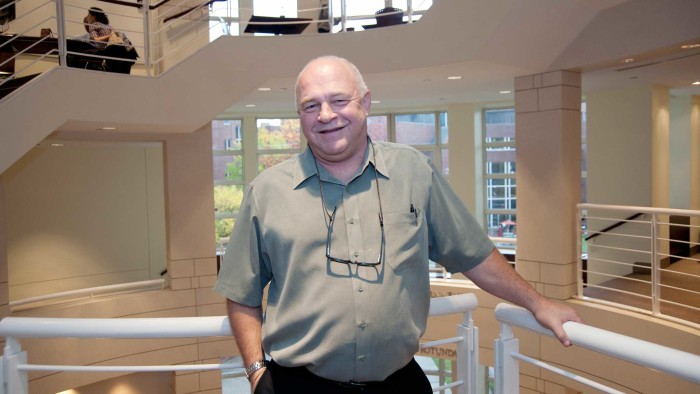Lessons from management’s wild west

Simply sign up to the Business education myFT Digest -- delivered directly to your inbox.
The US presidential election has heightened interest in Steve Jarding’s Running for Office and Managing Campaigns course at Harvard Kennedy School of Government, which is taken by Harvard Business School students on the joint MBA/masters in public policy.
Mr Jarding, who has run a similar elective for Iese MBA students in Madrid for the past four years, has managed and worked on campaigns for Democratic party senate and presidential candidates including Bob Kerrey, Mark Warner, John Edwards and Jim Webb – and was described by the New York Times as a “smart and aggressive tactician” who wins races in places he is not supposed to.
Why do business students want to study campaign management?
Because it matters. Public service is important and as crazy as politics can be, it’s the vehicle that drives you to the place you can govern.
Campaign management can be the Wild West of management and it’s a pretty ugly profession: 18-hour days, seven days a week. But it’s how you make a difference. I believe I had a significant role in helping Jim Webb win in 2006 the seat that swung the Senate to Democrats. That sounds arrogant but you have to believe you can make a difference.
You may not like the political system but candidates don’t govern. I tell students it’s akin to two islands: the candidate island and the elected official island. Unfortunately, the water between those islands is more like a cesspool and you have to jump in if you want to govern. But hopefully I instil in my students the importance of values, so when they swim through that dirty water they don’t forget who they are. My role is to show students a path to victory and let them decide on the variables.
Do students want to run for office?
Yes, even those from the MBA track. Some students disenfranchise themselves, thinking they have to be wealthy or that they don’t know enough policy. So we try to demystify some of it. For example, you need to know only a little about everything. If you’re not a good speaker, we can teach you communication. If you have skeletons in the closet – we can show you how to address those.
How is the course structured?
We first ask what does public service mean to you? And why would you run? Then we examine how to know your district and not just the stats. You need to know voters’ fears and insecurities. You need to find what families in your district are talking about at their kitchen tables. If you can tap into those, you are more likely to sell your product, your candidacy, to them.
Then we launch into setting up a campaign plan – how do you raise money, how do you do opposition research, what consultants do you hire, what’s your policy position, how do you set up a policy team – before looking at get-out-the-vote techniques.
Any successful alumni?
I have a student who was elected to represent Delaware, two just elected to parliament in Switzerland and one who helped implement the winning campaign plan for Prime Minister Mariano Rajoy in Spain. I have another in Asia who plans to run for prime minister and I believe he will win, as he was a terrific student.
I’m the biggest cynic in the world about politics until I get into class and teach these students. Then I realise we’re going to be fine. If this course can create better leaders for the US and around the world, we’ll have a better world.
Why don’t other business schools offer campaigning courses?
I think some schools believe their students only want to go out and make money. However, you don’t have to devote your whole career to politics. You can work in politics for 10 years and then go back into business. My experience of business school students is that while they want to make money, they also understand their role in the world and that business and government depend on each other. If business schools could demystify the world of politics, why wouldn’t we want our best students to consider political careers?
Comments